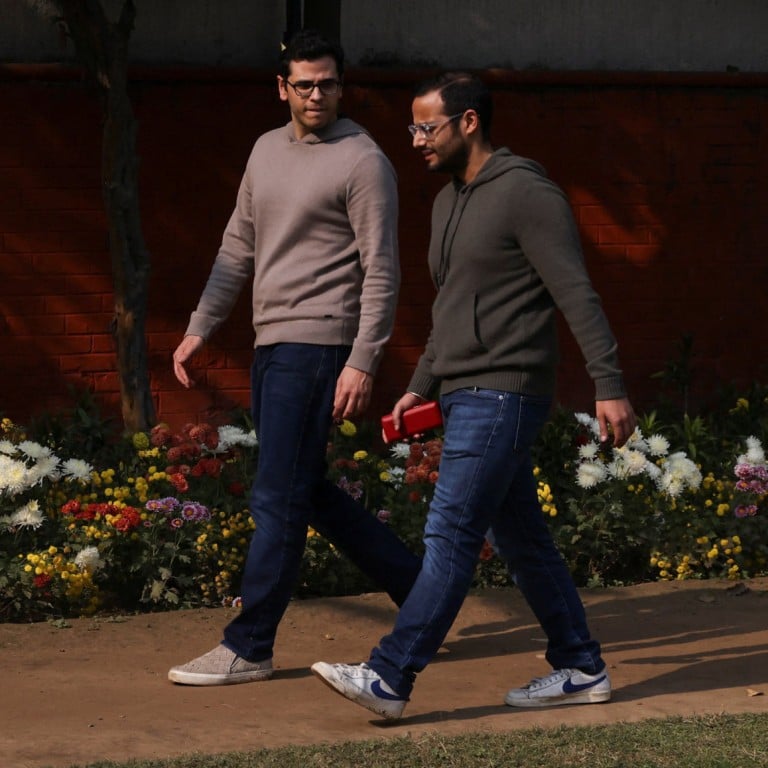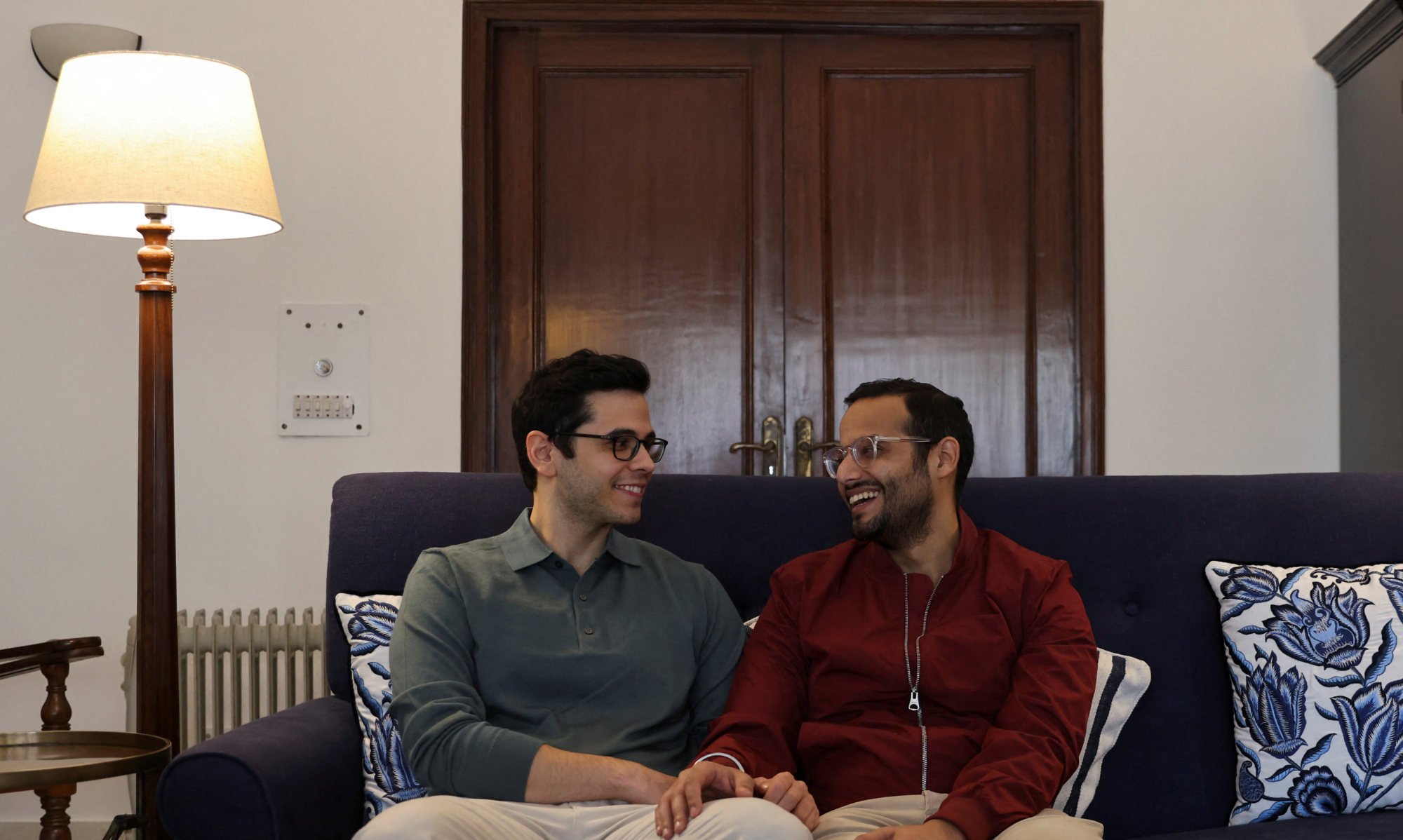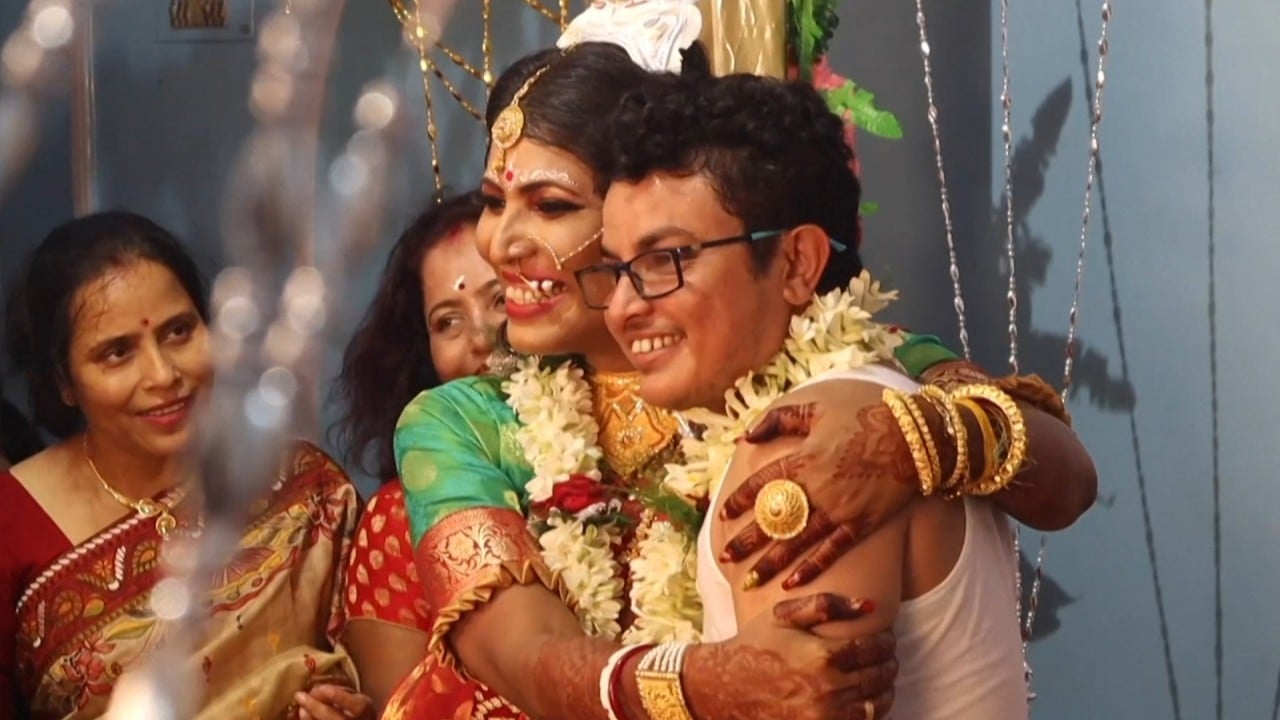
Indian gay couples fight for same-sex marriage rights at Supreme Court
- Four couples have petitioned the court wanting their unions legally acknowledged and saying they’re denied rights linked to medical consent, pensions and adoption
- In 2018 a colonial-era ban on homosexuality was struck down, but experts say the government will fight further LGBTQ demands ‘tooth and nail’
Modi’s administration initially opposed ripping up the ban on homosexuality, but its final decision to abstain allowed for the landmark ruling.
Ahead of Friday’s hearing, one of the same-sex marriage petitioners, Abhay Dang, said the non-recognition of his marriage with partner Supriyo Chakraborty has deprived them of basic rights and opportunities enjoyed by married heterosexual couples.
“We feel like we are the most important people in each other’s lives, but in the eyes of the law, we are like strangers,” he said.
India’s LGBT community celebrates historic legalisation of gay sex
Supreme Court filings show that the four couples say they are denied rights such as those linked to medical consent, pensions, adoption or even simpler issues like joint club memberships, according to Reuters.
Another petitioner, Uday Raj Anand, who has been with his partner Parth Mehrotra for 17 years, said only one of them was able to be a legal guardian of their children as the law did not recognise them as married.
“We have a loving family with two wonderful children, and there is an indignity in not being recognised as a family in the eyes of the law,” he said.

A long battle
Observers note that the road to marriage equality will not be smooth.
Following the Supreme Court’s 2018 judgment to decriminalise gay sex, Modi’s government warned that judges should not change other aspects of Indian law, such as the right to marriage.

It also noted that in India, marriages are a “solemn institution between a biological man and a biological woman”.
And last month, a federal lawmaker from Modi’s Bharatiya Janata Party objected in parliament to same-sex marriages, saying that it should not be up to two judges to rule on the issue.
“Given that same sex marriage is a societal issue the judiciary shouldn’t decide over its legality,” Sushil Kumar Modi also tweeted. “The issue must be deliberated over in parliament and in society instead.”
Precedent for change
The couples who filed the petition are being backed by Mukul Rohatgi, a former Attorney General, and lawyer Saurabh Kirpal, who openly identifies as gay. He said in an interview last month that his elevation as a state judge had been delayed by the government due to his sexual orientation.
Kirpal told This Week in Asia that Friday’s petition is a step towards securing further rights for gay couples, in the same way that 2018’s decriminalisation judgment laid the foundation.
“Ultimately, the hope is that this precedent, if it does come, will lay (the) groundwork for further moves to secure legal and practical equality,” Kirpal said.
“Discrimination will not end with the recognition of same-sex marriage, and it will be a continued battle to secure all other legal rights.”
Singapore’s Section 377A gone, but for some LGBTQ families nothing has changed
Kothari from the CLPR said there also needs to be a continued grassroots movement.
“That will be important in showing the government that more and more people are demanding recognition for marriage equality in India,” she said.
If the Supreme Court rules in favour of the petitioners it may lead to India becoming one of around 30 countries where same-sex marriages are legal. The court’s bench on Friday set the next hearing date for March 13, according to legal reporting portal Bar & Bench.
For same-sex couples, the issue is about far more than legal documentation.
“In Indian society, when we say we’re settling down, we always think about marriage,” said petitioner Chakraborty about his husband Abhay Dang.
“And maybe this is a traditional idea,” he added, “but I always wanted to get married, and I want to call Abhay my husband. That is important to me”.
Additional reporting by dpa


